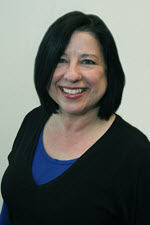The physical and mental toll on caregivers.
Back in 2003, my husband experienced cardiac arrest, and that turned my world upside down. Fortunately, he recovered fully, but the arc of rehabilitation took a toll on me, his caregiver.
During the initial acute phase of hospitalization, I wasn’t directly responsible for taking care of Sean, but I still visited the hospital every day, arriving promptly at 8 am and spending the most of the day with him, leaving at 8 pm in the evening. Everything else was on hold (poor cats!).
When he was released from the hospital, I continued to closely monitor him even as I returned to my full-time job. Talk about distracted. I took on everything at home, as he was very tired and understandably depressed. He couldn’t drive, so I arranged transportation for his young son’s visits. He wasn’t allowed to work for three months, so I handled all of the financial responsibilities. Fortunately, I earned enough, but fighting for disability was time-consuming and stressful. And my work schedule made Sean’s loneliness palpable.
Like any natural caretaker, I went above and beyond, with special treats to keep him engaged and distracted from his despair. His family came from the U.K. to visit and I added entertaining guests, taking them sightseeing, shopping and throwing parties to my other responsibilities. Did I ask for help? Nope, not even to wash a dish.
One day after almost five months of care taking, I woke up and realized I couldn’t really move my neck from side to side. It hurt so much and I couldn’t understand why until much later.
Did I also mention that I was drinking fairly regularly too? Not to excess, but to take the edge off. Just one to three glasses of wine a night to unwind.
And, I gained weight, had no energy, didn’t sleep well and every day went by in a blur. It didn’t register that his ongoing care was negatively affecting my health. And, why did I feel so angry? And with whom? Am I a bad person, or just overwhelmed?
I am sharing this with you as a testament to how easily we can lose track of ourselves while ministering to others. Most of us will be caretakers at some point in our lives, taking care of our parents, spouses or other loved ones. Better to have a plan and set a foundation of wellness for yourself now.
A caregiver is defined as someone who provides regular and direct care to someone who is sick or disabled, and often lives with them. According to AARP’s 2015 report Caregiving in the U.S, 60% of caregivers are women, average age 49. Most are caring for a parent or spouse for approximately four years. Most of the care is for someone suffering from dementia or Alzheimer’s, cancer, mobility issues, recent surgery, and even mental health issues.
22% of long- term caregivers feel that their health had suffered as a result of taking care of a family member. Loss of health increased with the amount of time spent on caregiving, the emotional and or financial drain, the closeness of the relationship, and the type of care administered. Not having control or choice about taking care of a someone we love just happens and that lack of control causes additional stress.
On average, the unpaid caregiver is spending almost 25 hours in a week helping a loved one in time of need. If the family member is a spouse that number can quickly rise 44 hours, which is like having a full-time job. Oh, wait, you already have a full-time job? And, don’t think that job won’t have its interruptions from your other equally important job at home.
So how do we protect ourselves from unrelenting physical and mental assaults as we navigate through our new role as chief cook and bottle washer for a loved one in their time of need?
The first step is to recognize and acknowledge the stress that comes with the territory. And create a plan for self-care during a time of heightened activity and pressure.
What is self-care? Many people think of it as an indulgence, I like to think of it as a shield. Not kidding…I really visualize a big heavy wood and metal shield that I can maneuver to protect myself. We will examine self-care next time when we discuss how to develop a toolkit, and ways to sustain yourself before the well goes dry.

Disclaimer: The material in this blog is for educational purposes only. It is not intended to replace, nor does it replace, consulting with a physician, lawyer, accountant, financial planner or other qualified professional.


Wow, it’s shocking to learn that this type of care, is virtually is so extensive and so unsung.
S. Thanks for your comment. Yes, the numbers are shocking and most people are unaware of the multitude of people who care for family members without getting paid. I am concerned that the proposed changes to the ACA will create a perfect storm in caregiving and these numbers will grow to an unsustainable level.